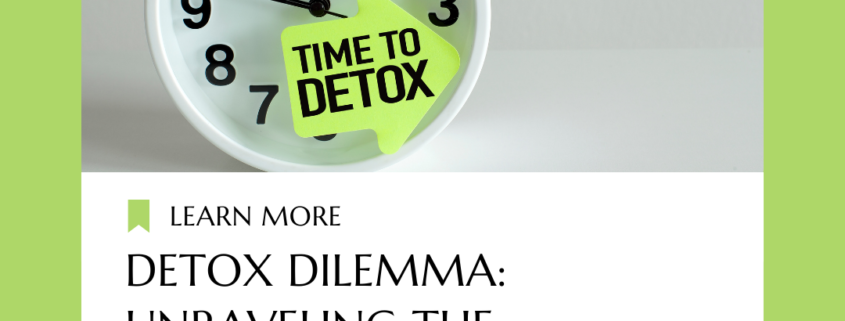Detox Dilemma: Unraveling the Truth About Fasting
The idea of using fasting, or food restricting, to detoxify the body is a topic of ongoing research and discussion within the scientific community. While there is some evidence suggesting potential health benefits associated with fasting, the concept of “detoxification” in the way it is often presented in popular culture may not align with scientific understanding.
What do we know so far?
Research on intermittent fasting, also called time-restricted eating, has shown some promising results in terms of metabolic health, weight management, and potential longevity benefits. In addition, fasting may also trigger cellular processes such as autophagy, where cells remove damaged components. These effects have led to speculation about the potential for fasting to support overall health.
What is Detoxification, anyways?
The term “detoxification” is often used in a vague and misleading way. In fact, the human body has its own sophisticated systems for detoxification, known as the liver and kidneys. These organs work to process and eliminate toxins from the body on an ongoing basis and do so very effectively, assuming they are functioning optimally. In fact, despite what specialty water companies might say, these organs also help control your body’s pH level which has a positive cascading effect throughout the body.
So, what you’re telling me is…
It’s essential to approach claims about fasting and detoxification with caution. While there may be benefits to certain fasting practices, fasting may not be suitable for everyone. Individuals with health conditions such as diabetes, certain heart conditions, and those with certain gastrointestinal disorders are among those who may experience a greater risk than benefit. In addition, certain macronutrients such as protein as well as vitamins and minerals including calcium have limited absorption when consumed in short periods of time, putting people at risk for poor nutrient absorption.
Bottom-line:
As research in this area continues, it’s important to stay updated on the latest scientific literature and recommendations from reputable health resources. Always consult with your healthcare provider for personalized advice based on your individual health status and needs.



